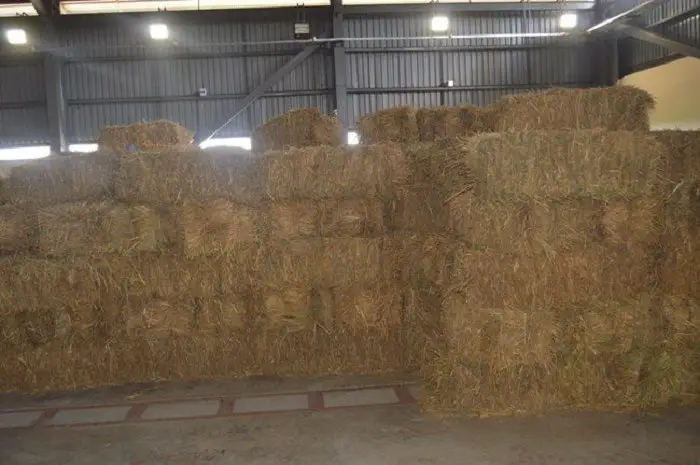STRAWTEC, a Germany based company is presently providing an alternative to common cement that made walls by replacing them with wheat and rice straw in Rwanda.
The technology being used ensures the material used undergoes extrusion process to allow the natural adhesives contained within the agricultural straw fibers are binded to form a continuous high quality strawboard panel. This process also, has the ability to create very complex cross sections and work materials that are brittle as the surface remains durable and capable to withstand the test of time. The technology has been existing for more than 80 years and has been used to build more than 250,000 million houses in Europe, America, and Oceania.
The company has been running a factory in Kigali since October, 2015. Its manufacturing facility entered the market with a bang and obtained the attention of the construction industry in the country.
Rwanda is one the fastest growing economies in Africa and its government is doing all it can to boosting every sector to improve the standards of living of its people. Even so, urbanization in Rwanda is a particularly sensitive issue especially in Kigali whereby land and construction costs go over the roof every day for a city of one million people living in a very densely populated area.
However, the government and the private sector are optimistically seeking solutions to better management of land. In this regard, in 2009 the Kigali City Council (KCC) launched the Kigali Master Plan to serve as a roadmap for the enlargement of the city for the next coming 50 years.
For the master plan to be successfully implemented, the government needs to partner with other investors and come up with a clear vision and specific timeline on both sides. The master plan consists of land management through the building of large number of apartments with the necessary basic standards a household needs.
According to Eckardt M.P. Dauck, STRAWTEC Chairman, the strawboard panels contain Carbon negative footprint compared to traditional building materials like cement blocks, and it is proven that the new technology is able to save upto seven times CO2 per dwelling unit which makes it quite substantial by replacing cement blocks with STRAWTEC materials.
Apart from the technology being very affordable, the material used are readily available locally something which will reduce the supply chain risk due to use of these locally produced materials. On the other hand, the cost of production is greatly reduced compared to the cost of cement production.
The wheat and rice straw are 100% recyclable and biodegradable. Therefore, Rwandese farmers have an opportunity to earn an extra income by selling wheat and rice straw once the wheat has been harvested instead of burning it. This will ensures the environment remains conducive and will not pose any health hazard. The products used are not toxic hence they require no additional harmful chemical during production.
Building a house using STRAWTEC technology is very fast, efficient and saves time due to easy assembly at the construction site, therefore a substantial savings is achieved in financial costs which could have been incurred and resources can be used in other sectors of the economy. And when the sun shines on your roof and the latter is a metal, it gets hotter inside the house, but the STRAWTEC ceiling has the ability to delay solar radiations penetration up to 11hrs – improving energing efficiency.
The factory has partnered with the ministry of education, Workforce Development Authority (WDA) and Gesellschaft für Internationale Zusammenarbeit (GIZ) to ensure the clean technology knowledge transfer among young students in vocational training schools. The factory is now employing many well-trained students from Technical and Vocational Education and Training (TVET).
As Rwanda urbanization keeps raising, the land will definitely be scarce as the population is also on the rise. However, the new STRAWTEC technology will enable Rwandans to own their own house as the technology is cost effective, affordable, and manage the land well.
The company is however, focusing to ensure that Rwanda stops overreliance on imported construction materials such as cement and instead offer them an opportunity to export this new technology to the neighboring markets. The factory is currently in process of buying pieces of land to start its own eco-friendly development whereby there will be a good waste management, sewage, and utility using solar energy.

Hello?
I’m a student in Jomo Kenyatta University of Agriculture & Technology in Kenya and I’m researching on STRAWTEC application here in Kenya as alternative walling material in the provision of housing. I wanted to inquire if besides Rwanda have you penetrated the kenyan market or have any offices or projects around???